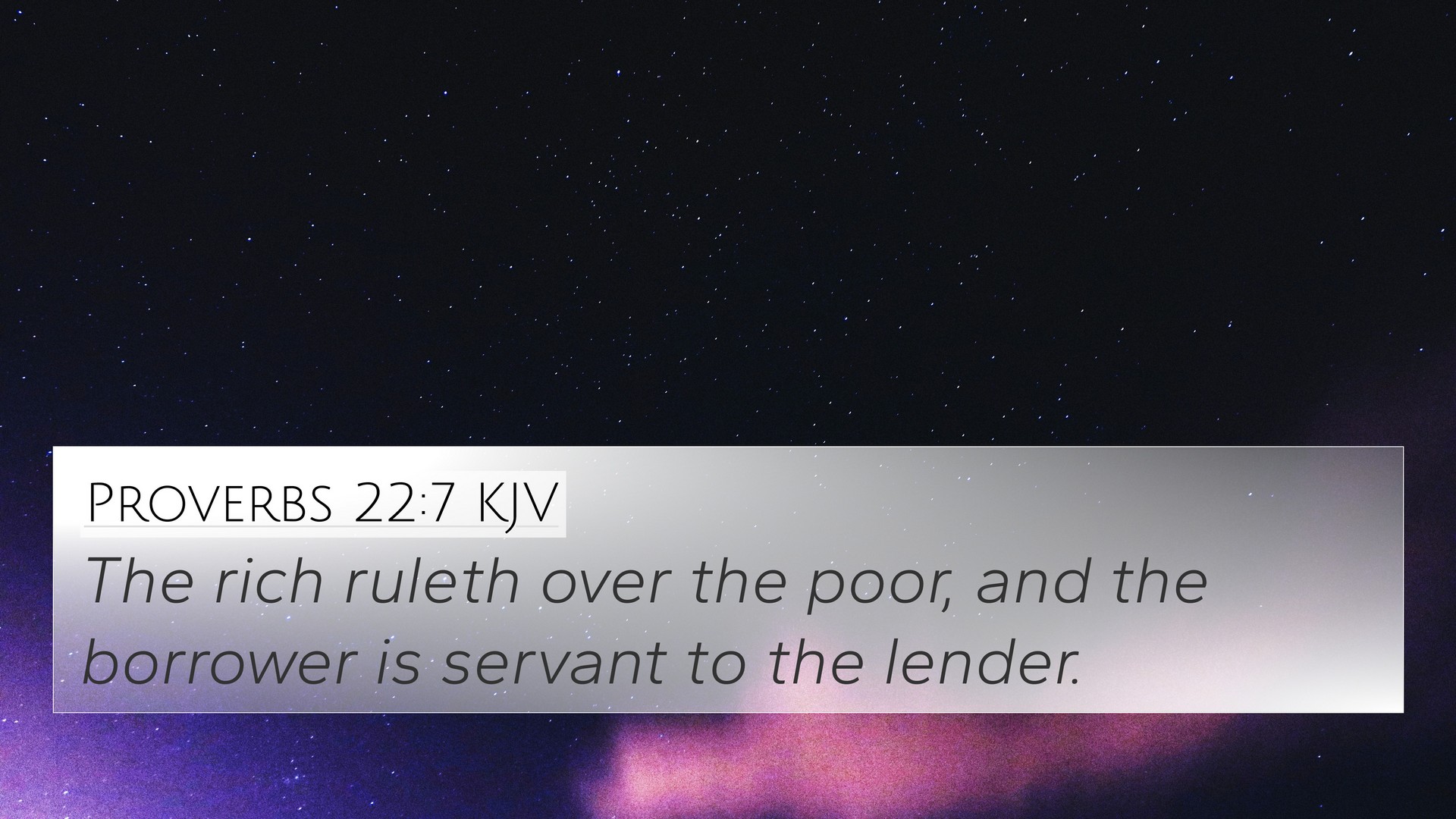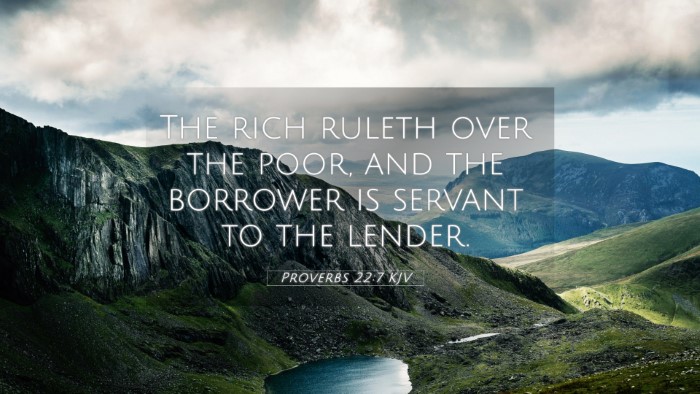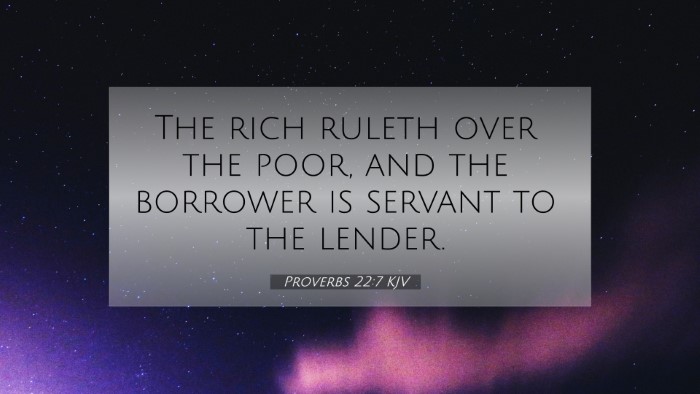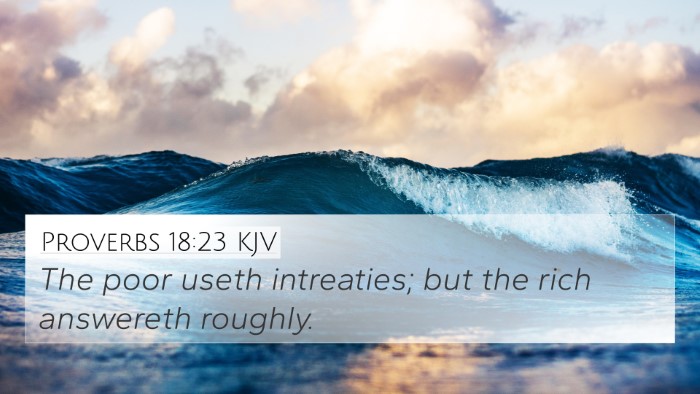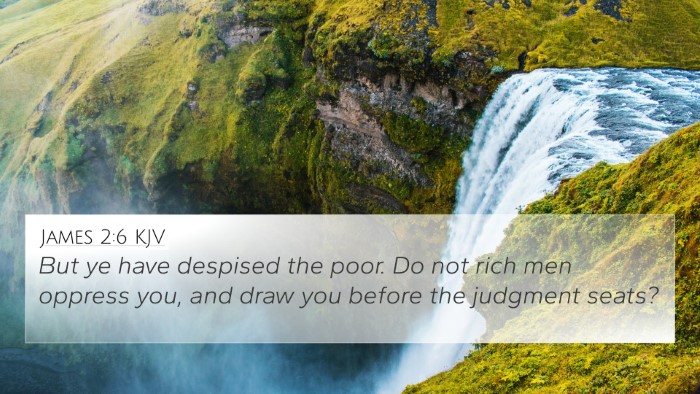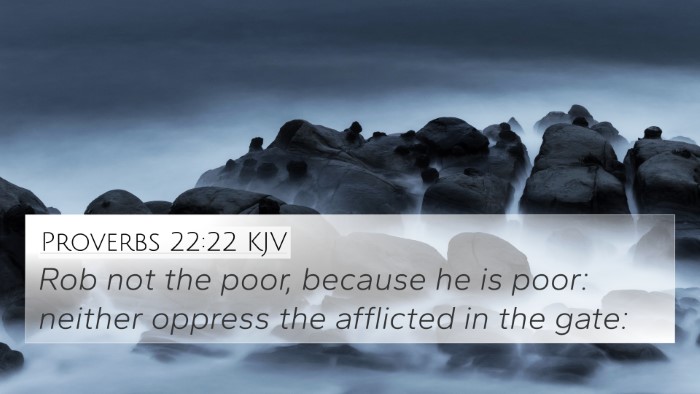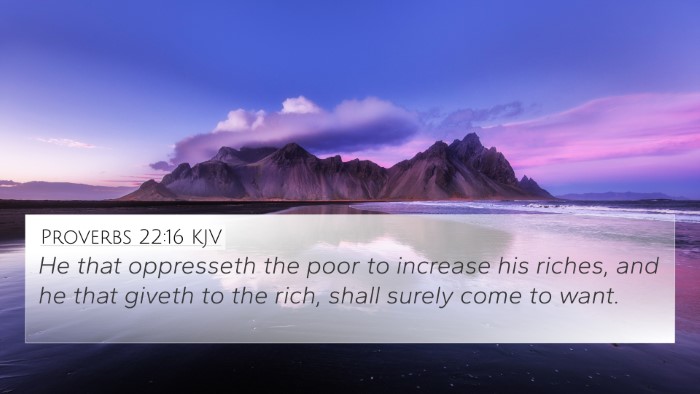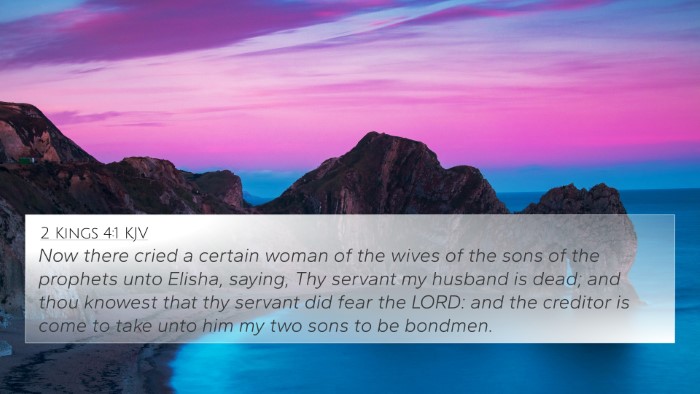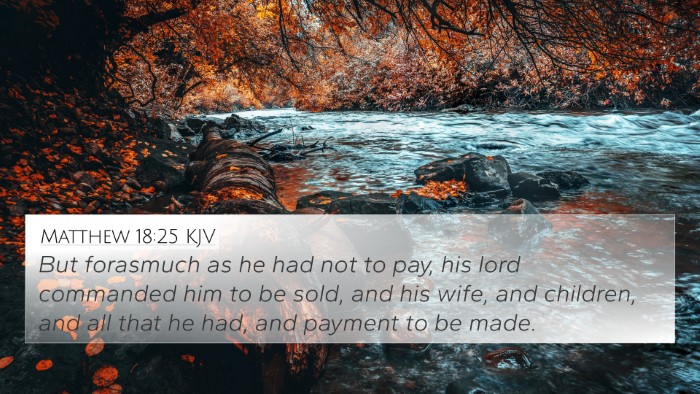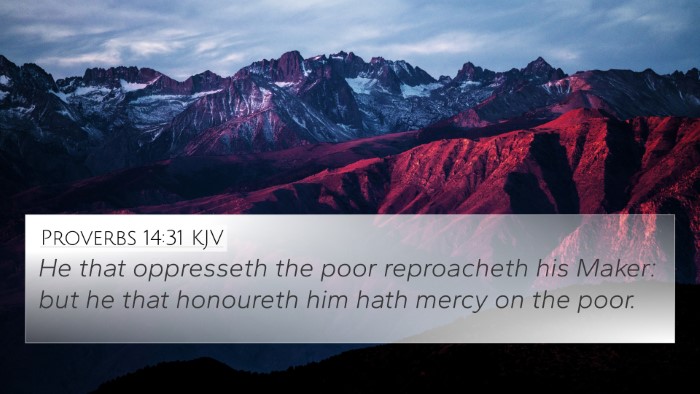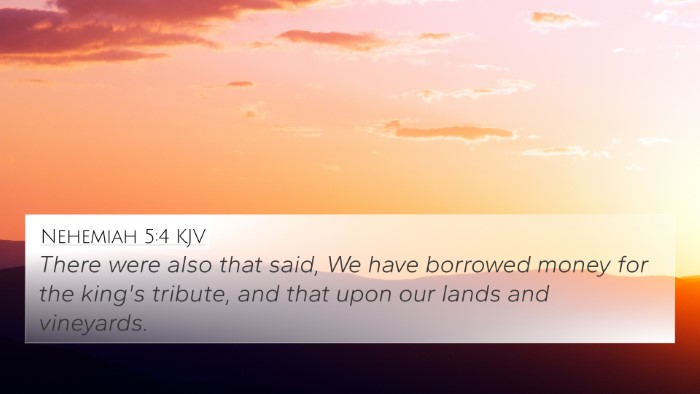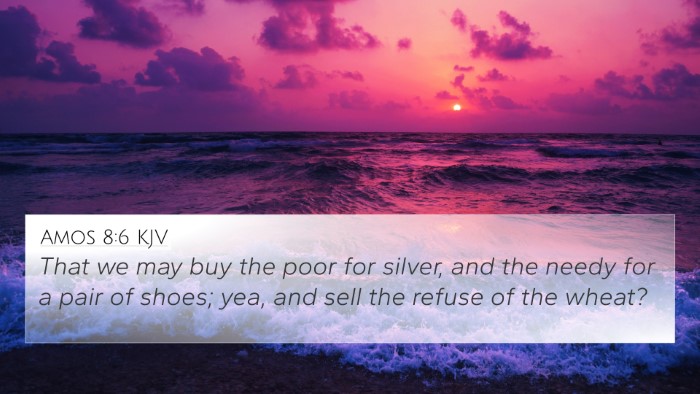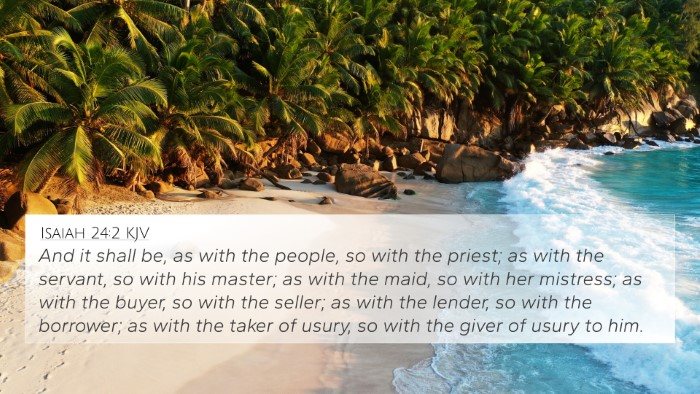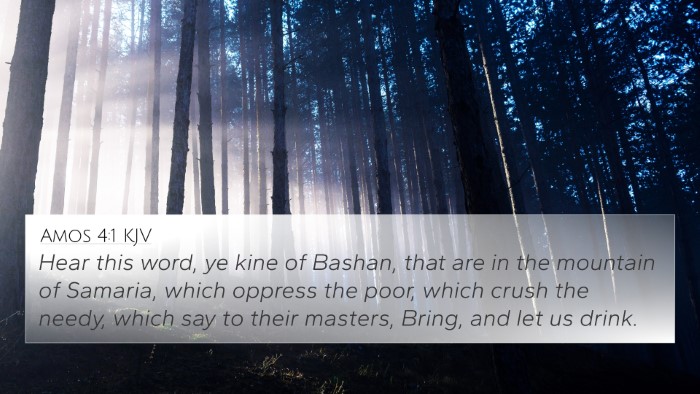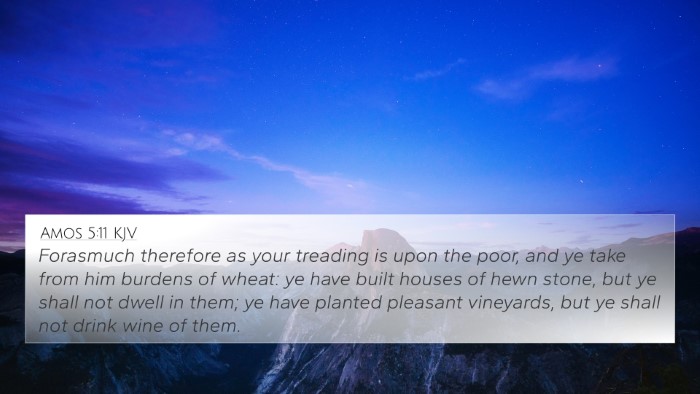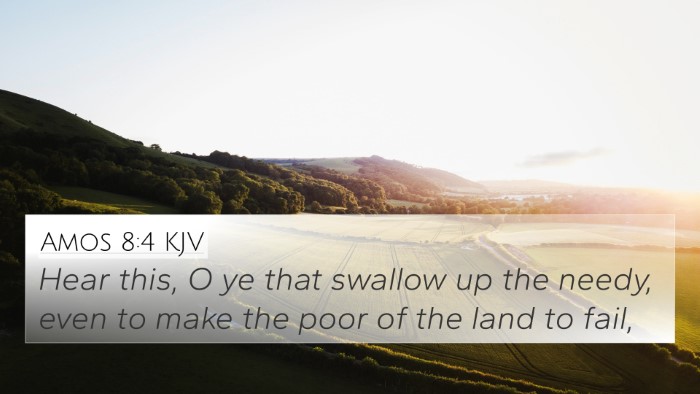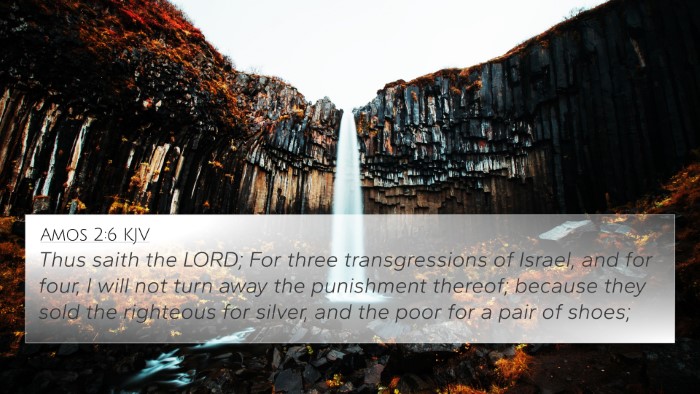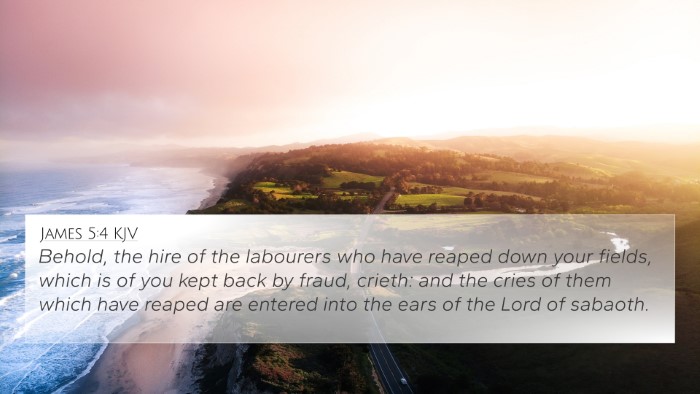Understanding Proverbs 22:7
Proverbs 22:7 states: "The rich ruleth over the poor, and the borrower is servant to the lender." This verse offers profound insights into the dynamics of wealth, power, and dependency.
Summary of Insights
The understanding of Proverbs 22:7 involves recognizing the inherent truths about financial and social hierarchies. Drawing from the public domain commentaries, we can interpret the verse as follows:
- Matthew Henry: Henry emphasizes the dominion that wealth has over the poor, suggesting that wealth not only provides power but also creates a system where those in poverty remain subservient to their creditors.
- Albert Barnes: Barnes highlights the implications of borrowing, explaining that it creates a bond of servitude. He notes that those who lend money gain control over the borrowers, often leading to exploitation.
- Adam Clarke: Clarke discusses the socio-economic systems reflected in this verse, asserting that wealth creates a distinction in social status that can foster inequality.
Connections to Other Scriptures
This verse connects deeply with various other biblical texts, and below is a comparative analysis of seven to ten related cross-references:
- Proverbs 17:18: "A man void of understanding striketh hands, and becometh surety in the presence of his friend." This verse parallels Proverbs 22:7 by discussing the risks associated with being a borrower.
- Romans 13:8: "Owe no man any thing, but to love one another: for he that loveth another hath fulfilled the law." This links to the idea of financial obligation and servitude conveyed in Proverbs 22:7.
- Luke 16:11: "If therefore ye have not been faithful in the unrighteous mammon, who will commit to your trust the true riches?" This verse emphasizes the moral implications of wealth management, resonating with the themes in Proverbs 22:7.
- Ecclesiastes 5:10: "He that loveth silver shall not be satisfied with silver; nor he that loveth abundance with increase: this is also vanity." This reflects the futility of riches and how it leads to deeper issues resonating with the borrower-lender dynamic.
- Proverbs 21:5: "The thoughts of the diligent tend only to plenteousness; but of every one that is hasty only to want." This highlights the importance of diligence and wise financial practices to avoid servitude.
- Proverbs 19:17: "He that hath pity upon the poor lendeth unto the LORD; and that which he hath given will he pay him again." This presents a righteous alternative to the borrower-lender relationship discussed in Proverbs 22:7.
- Proverbs 11:24-25: "There is that scattereth, and yet increaseth; and there is that withholdeth more than is meet, but it tendeth to poverty. The liberal soul shall be made fat: and he that watereth shall be watered also himself." This illustrates the broader principle of generosity and its blessings compared to the pitfalls of materialism.
Thematic Bible Verse Connections
Through these cross-references, we can see several themes emerge:
- The risks of debt: Multiple verses highlight the perils of borrowing and financial obligations, reinforcing the wisdom found in Proverbs 22:7.
- The moral implications of wealth: Various texts address how wealth affects individuals and their relationships with others, echoing the sentiments in Proverbs 22:7.
- The role of diligence and stewardship: Proverbs presents a consistent message regarding the importance of wise financial practices and its effect on overall well-being.
Tools for Bible Cross-Referencing
Understanding Proverbs 22:7 and its interconnections can be enhanced using several tools:
- Bible Concordance: Ideal for finding words and phrases to uncover related verses and connections.
- Bible Cross-Reference Guide: A comprehensive tool for identifying direct links between passages.
- Cross-Reference Bible Study: Engaging in a systematic study can deepen understanding through comparative analysis.
- Bible Reference Resources: Various reference materials can help in locating relationships between scriptures.
- Comprehensive Bible Cross-Reference Materials: These aids provide extensive listings and context for cross-referencing.
User Intent and Related Queries
When considering user intent, individuals seeking to delve deeper into this verse might ask:
- What verses are related to Proverbs 22:7?
- Find cross-references for Proverbs 22:7.
- How do Proverbs 22:7 and Romans 13:8 connect?
- Similarities between Proverbs 22:7 and Ecclesiastes 5:10.
- Bible verses that support the teachings of Proverbs 22:7.
Conclusion
In summary, Proverbs 22:7 serves as a significant reminder of the social and economic dynamics that underpin wealth and poverty. By exploring cross-references and utilizing Bible study tools, readers can deepen their understanding of this profound biblical truth, engage in a comparative analysis of related scriptures, and appreciate the connections present throughout the Bible.
